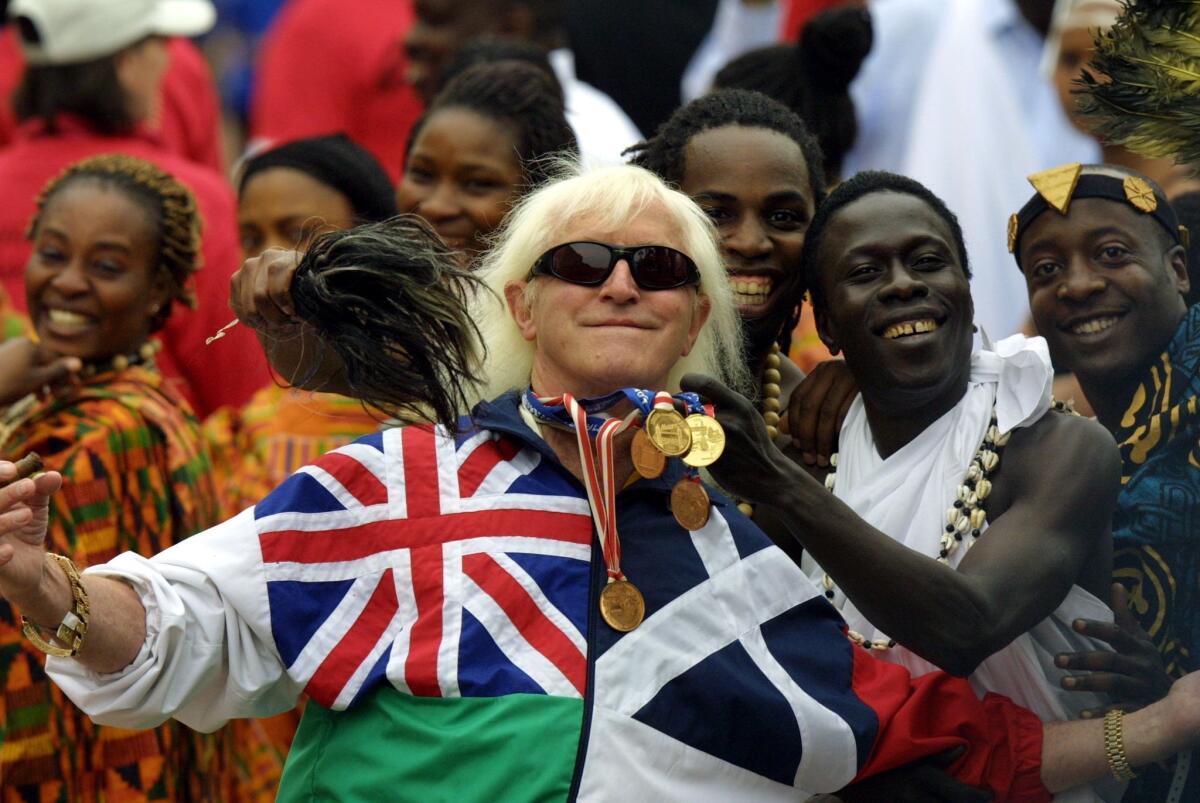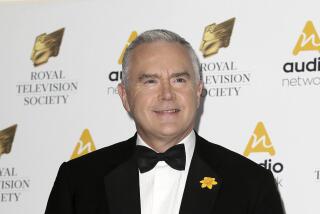BBC missed opportunities to stop sexual predator Jimmy Savile, inquiry finds
Reporting from London — An investigation into the Jimmy Savile sex abuse scandal cleared the BBC of wrongdoing Thursday, even as it painted a damning portrait of an institution where employees were afraid to raise even serious concerns about sexual misconduct for fear of upsetting celebrity talent or making the corporation look bad.
Savile, a BBC television presenter and popular charity figure who died in October 2011, is believed to be one of Britain’s most prolific sex offenders, often targeting minors.
See the most-read stories this hour >>
The review initiated by the BBC blamed the institution’s internal culture for being behind the failure to sound the alarm on Savile’s predatory activity. It was only after Savile’s death that the extent of his crimes became clear — touching off a national shock wave of rage and introspection about how best to deal with sexual abuse charges, particularly involving the famous.
“Celebrities were treated with kid gloves and were virtually untouchable,” said Janet Smith, a former Court of Appeal judge who conducted the inquiry, describing a BBC culture of not wanting to “rock the boat.”

BBC television presenter Jimmy Savile poses with people representing British Commonwealth countries during Golden Jubilee celebrations in London in 2002.
“There was a feeling of reverence for them and a fear that, if a star were crossed, he or she might leave the BBC,” she added.
According to the report, a particular fear of whistle-blowing prevented BBC junior staff members from escalating their complaints to senior managers. Smith said an atmosphere of fear still exists at the BBC but cleared the institution of responsibility for Savile’s widespread sex abuse — a decision likely to infuriate his victims.
“I have found no evidence that the BBC, as a corporate body, was aware of Savile’s inappropriate sexual conduct in connection with his work for the BBC,” she said.
See more of our top stories on Facebook >>
Smith said 117 people at the BBC admitted they had heard rumors about Savile, who abused victims on BBC premises, including the venues where his programs “Top of the Pops” and “Jim’ll Fix It” were shot.
Smith’s review said the Savile abuse incidents dated all the way back to 1959. She identified 72 victims of Savile, both male and female — and one was only 8 years old.
But girls who raised concerns about Savile were treated as a “nuisance.” In one case in 1969, a girl who was molested on the “Top of the Pops” program while standing next to Savile on the podium was “ejected from the building.”
The inquiry also concluded that another BBC star, sports presenter Stuart Hall, 86, also used his celebrity to shield his activities, often plying his victims with alcohol.
The Hall investigation was carried out by another former Court of Appeal judge, Linda Dobbs, because Smith had a conflict of interest. Dobbs found 21 victims of Hall, who was jailed in 2013 after pleading guilty to multiple charges of indecent assault.
“The culture at the BBC certainly enabled both Savile and Stuart Hall to go undetected for decades,” Smith said. “I have identified five occasions where the BBC missed an opportunity to uncover their misconduct.”
The director-general of the BBC, Tony Hall, apologized to the victims Thursday.
“What this terrible episode tells us is that fame is power, a very strong form of power,” he said. “And like all power it must be held to account. It must be challenged and it must be scrutinized. And it wasn’t.”
ALSO
Peru has copper. China wants it. And now Beto Chahuayllo is dead.
South Korean lawmakers try first filibuster since 1969 to block anti-terrorism bill
In Athens, thousands of Afghan refugees are living in public parks as their path north is blocked
More to Read
Sign up for Essential California
The most important California stories and recommendations in your inbox every morning.
You may occasionally receive promotional content from the Los Angeles Times.










